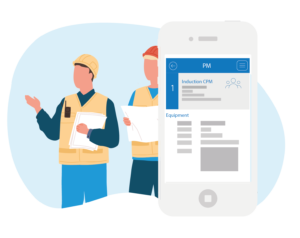Data-led lease strategies can guide commercial landlords and retailers through uncertainty
Retail real estate continues to be sorely tested in today’s economic environment. Even as the world returns to normality after the disruption of the pandemic, we are still witnessing brick-and-mortar retailers – not to mention restaurants, bars, cinemas and storefront services – struggling to stay open.
Retail tenants were already challenged to adapt to new consumer expectations before 2020, and the pandemic only exacerbated the need find ways to survive financially and make the best strategic and legal decisions amid ongoing uncertainty.
Additionally, leases are also changing – real estate occupiers are pushing for new clauses, more flexibility, and in many cases shorter terms. As businesses reevaluate the structure of leases, it’s more important than ever for landlords to have quick access to reliable, auditable lease data.
To do that, commercial retailers need comprehensive and accurate data on their businesses – and the ultimate goal is the ability to gain insights into their lease portfolios for more informed strategic decisions.
Leveraging data to gain lease insights
Retail tenants – and the commercial landlords they rent space from – need to ask tough questions about their lease portfolios and what they need to do to position themselves to withstand a potential downturn. The same tools that helped these businesses navigate the twists and turns during the pandemic can also offer assistance in other unpredictable situations.
Data can help businesses understand what their position is across their lease portfolios, whether they are the lessor or the lessee – and, in many cases, the two may need to find ways to work together to come out of the situation with their businesses intact.
Preparing to weather an economic downturn
The lack of access to good quality data is one of the major challenges the retail industry and commercial landlords have faced during recent years. At a time when businesses require more information and data-driven insights for quick decision making, tenants and property owners are slowed down by leases that hold inaccurate, out-of-date or simply inaccessible information.
Minimizing risk is always the priority for real estate firms – in good times and in bad. But with the quickening pace of change and the need to always be ready for what comes next, landlords and tenants must have the right technology in place to highlight risks and opportunities.
Artificial Intelligence (AI) for lease data
The real estate sector generates mass quantities of information, but one of the most important is lease data. Since human error is the leading cause of accounting mistakes, it’s only logical that businesses should rely on technology to make data more reliable.
AI and machine learning can rapidly abstract lease data from a broad range of digital and paper sources. The ability to know what’s happening inside your lease or your tenants’ leases is critical, and the impact of poor data is far greater than most imagine. Gartner research shows that $15M is the average financial impact of poor data quality on a business.
To understand where your square feet really stand with respect to leases, not least your legal obligations and options, rapid AI-driven lease abstraction is vital.
Learn more about MRI’s AI-powered lease abstraction solution here.
MRI Forms Intelligence
Unleash the power of automated data extraction and analysis. Streamline your form processing with our advanced AI technology, eliminating manual tasks and maximizing efficiency. Unlock valuable insights from your forms with speed and accuracy. Experi…
